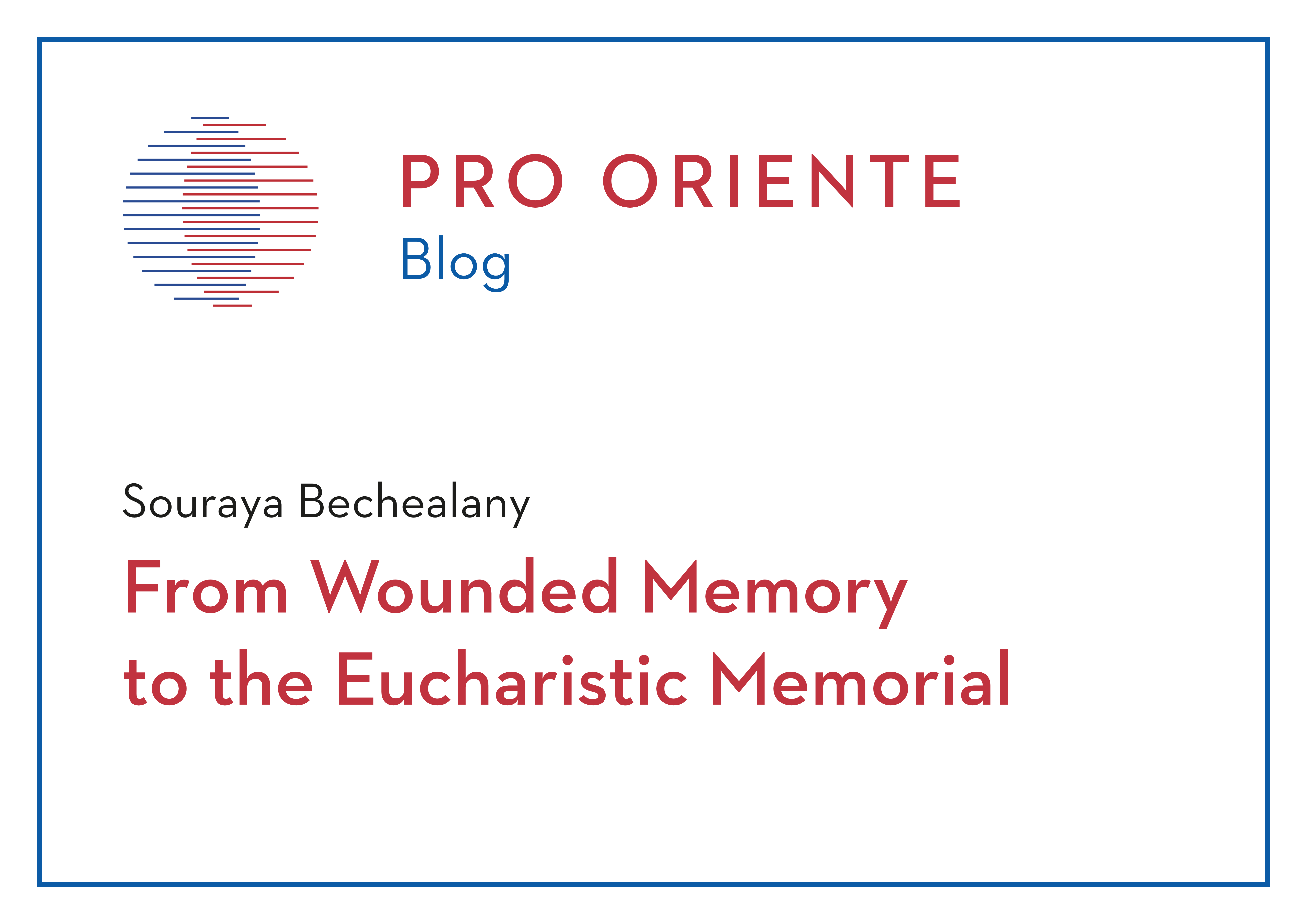From Wounded Memory to the Eucharistic Memorial
07. November 2024
Thema: Healing of Wounded Memories

This title expresses a trajectory, as it takes us from the wounded but transitory human memory to a liturgical event that does not pass; a divine event that heals and restores human memory, reconciling it with God, self, and the sisters and brothers.
I. The Balamand Document (1993)
This document comes after a hiatus of several years in the meetings of the Catholic-Orthodox Dialogue Commission, following geopolitical crises and the collapse of the Berlin Wall and its repercussions on the ecclesial situation in Eastern Europe; events that brought to light the wounds between the Orthodox and Catholic Churches caused by the uniatism movement. The theological dialogue between the two churches had to address this. Interestingly, the committee met in 1993 at the Antiochian Orthodox Patriarchate in Balamand, Lebanon. The Antiochians were instrumental in producing the document. This confirms, in terms of endeavor, form and content, the centrality of the leading role of the Eastern Churches in seeking reconciliation and bridging views, as the document openly affirms.
The document emphasizes the foundations that have been agreed upon since the Munich document (1982). This leads the two Churches to recognize themselves as ‘sister Churches’. It also enumerates practical rules, the first of which is ‘forgiveness’, ‘no triumphalism’, ‘abuse of the other church’, contempt and violence (etc.); the second is ‘dialogue of love’; and the third is the positive formation of priests and officials.
Unfortunately, to this day, this document has not been accepted by the churches, especially with regard to the ecclesiological principle of ‘two sister Churches’. However, it recorded a historical and prophetic position. But, It is our duty as theologians to take this prophetic document as an approach to our ecclesial and theological dialogue, and to work to activate its content, as it is a theological model for healing memory.
II. The Munich Document (1982): ‘The Mystery of the Church and the Mystery of the Eucharist in the Light of the Mystery of the Holy Trinity’
This is the first document issued by the Joint Commission for Orthodox-Catholic Theological Dialogue (1982) after the first meeting in Paphos/Rhodes in 1980, in which the Commission defined the spirit, content, methodology and calendar of the work. The Munich document showed the depth of the two churches' agreement on the fundamental foundations of the Christian faith and the concept of sacramentalism, paving the way for the following documents.
We have chosen to highlight it today because the healing of wounded memories can only take place in the Church through Eucharistic Memorial: “We remember your death, Lord, we confess your resurrection, and we await your coming”. We also chose it because it applies Rhodes’ methodology which has “decided to start from what we have in common and expand on it, and gradually address from within the points on which we have not yet agreed”.
We chose this document above all for its content. It recalls the constitution of Lumen gentium (Vatican II): The Church is a sacrament - a sign and instrument of communion between God and man. The Church reveals, realizes and participates in the mystery of Christ in a sacramental way and becomes his sacramental body. This sacrament is realized in the Eucharistic Memorial (“Do this in remembrance of me’), in the invocation of the Holy Spirit and in participation in Holy Communion. Divine remembrance is not a past event, but is now and always, because it is fulfilled in time “once for all’. Thus, in it we pass from wounds, pain and death to healing and life. This cannot be done without the Holy Spirit and his invocation on us and on the sacraments, and without participation in the Mystical Body of Christ. The Holy Spirit heals and deifies us.
In the second section, the document emphasizes that the Eucharist heals the wounds of division and transcends them into unity: “In the Eucharist, as in the life of the Church, everything begins with conversion and reconciliation. The Eucharist presupposes repentance and confession […]. However, the Eucharist forgives and heals from sins, because it is the sacrament of God's divine love, through the Son and in the Holy Spirit.’ In the third section, we read: ‘Communion does not imply diversity and plurality, but presupposes it and heals the wounds of division, transcending them in unity...”
Conclusion
We were taught in theological schools, and the Munich Document emphasized it, that there is no Eucharistic celebration between churches as long as communion in faith is not complete. But today, I call for a reconsideration of this principle. If we have agreed on the mystery of the Holy Trinity, on the Holy Scriptures, on the Creed, on the sacrament of the Church and on the sacraments, I find it most appropriate to celebrate the Eucharist together on the road to unity, in the midst of wounds and pains, and in spite of them, because the Eucharist alone can heal, sanctify and unite us. For it is not only the climax and the token of full communion, but first and foremost the way to communion and the sustenance for it. For Christ said, ‘Without me you can do nothing’ (Jn 5:15) and ‘I am the way, the truth and the life’ (Jn 6:14).



